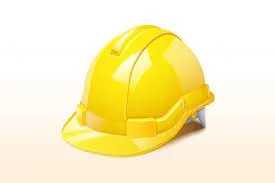Exploring High-Quality Mountaineering Safety Helmets for Adventurers and Climbing Enthusiasts
The Importance of Mountaineering-Style Safety Helmets
In the realm of outdoor activities, particularly mountaineering and rock climbing, safety measures are paramount. Among the crucial pieces of equipment that every climber should invest in, a high-quality mountaineering-style safety helmet stands out as an essential item. These helmets are designed to protect adventurers from the myriad of dangers associated with climbing, including falling rocks, equipment drops, and accidental impacts. Understanding the importance of these helmets, their features, and proper usage can enhance safety during any adventure.
Protection Against Falling Hazards
The primary function of a mountaineering helmet is to safeguard the climber's head from potential injuries caused by falling objects. In rocky terrains, loose stones and rocks can easily dislodge, posing a significant threat. A well-constructed climbing helmet is built to absorb impact and reduce the risk of severe head injuries during falls or rock strikes. These helmets are typically made from robust materials such as polycarbonate or EPS foam, which provide excellent shock absorption while remaining lightweight—a critical factor for climbers concerned about gear weight.
Lightweight and Comfortable Design
Mountaineering helmets are designed with the climber’s comfort in mind. They feature adjustable straps and harnesses to ensure a secure fit, which is crucial during intense physical activity. A well-fitted helmet prevents unnecessary movement, reducing distractions while climbing. Moreover, many modern helmets are equipped with ventilation systems that allow airflow, keeping climbers cool during strenuous ascents. This combination of protection and comfort enables climbers to focus on their climbing techniques and environment rather than adjusting their gear.
Durability and Weather Resistance
mountaineering-style safety helmet products

Climbing helmets must also withstand harsh weather conditions and rugged outdoor environments. Manufacturers design these helmets to resist abrasion, moisture, and temperature fluctuations. A durable outer shell not only protects against impacts but also makes the helmet suitable for various climates—be it the freezing temperatures of a winter ascent or the blistering sun during summer climbs. Therefore, investing in a high-quality mountaineering helmet ensures longevity and reliability throughout numerous climbing adventures.
Standards and Certifications
When choosing a mountaineering-style safety helmet, climbers should look for products that meet established safety standards. In the United States, for instance, helmets should comply with the requirements set by the American National Standards Institute (ANSI) and the Climbing Industry Safety Standards (CISS). Similarly, European helmets must adhere to the EN 12492 standard. These certifications ensure that the helmet has undergone rigorous testing for impact resistance and durability. Always check for such certifications when selecting a helmet to guarantee optimal safety.
Proper Maintenance and Care
To maximize the lifespan and effectiveness of a mountaineering helmet, proper care is crucial. Climbers should regularly inspect their helmets for signs of wear and tear, such as cracks or significant scratches on the shell. If any damage is detected, the helmet should be replaced immediately. Additionally, helmets should be cleaned periodically to remove dirt and grime, ensuring that any potential deterioration of materials is identified early. Following the manufacturer's guidelines for cleaning and storage also plays a vital role in maintaining the helmet’s integrity.
Conclusion
In summary, a mountaineering-style safety helmet is an indispensable piece of equipment for anyone engaged in climbing or adventurous outdoor activities. These helmets provide essential protection against head injuries, are designed for comfort during use, and are built to withstand harsh conditions. By choosing a helmet that meets safety standards and maintaining it properly, climbers can significantly enhance their safety and overall experience. As the saying goes, “Safety first!”—and investing in a high-quality helmet is a vital step in ensuring a safe and enjoyable climbing adventure.
-
Northern Safety Clothing Supplier Cheap OEM & China Options
NewsJul.04,2025
-
High-Quality Auto Racing Safety Clothing Affordable & OEM Options from China
NewsJul.04,2025
-
Aero Safety Helmet - OEM Gomax Aero Adult Safety Helmet, Affordable Protection for Cyclists
NewsJun.10,2025
-
Buy uvex pheos abs alpine safety helmet – OEM & Cheap Options from China Supplier
NewsJun.10,2025
-
Volman Safety Helmet - Premium Durable Protection for Industrial Workers
NewsJun.10,2025
-
Top Safety Helmet Suppliers in UAE Reliable Brands & Affordability
NewsJun.10,2025
